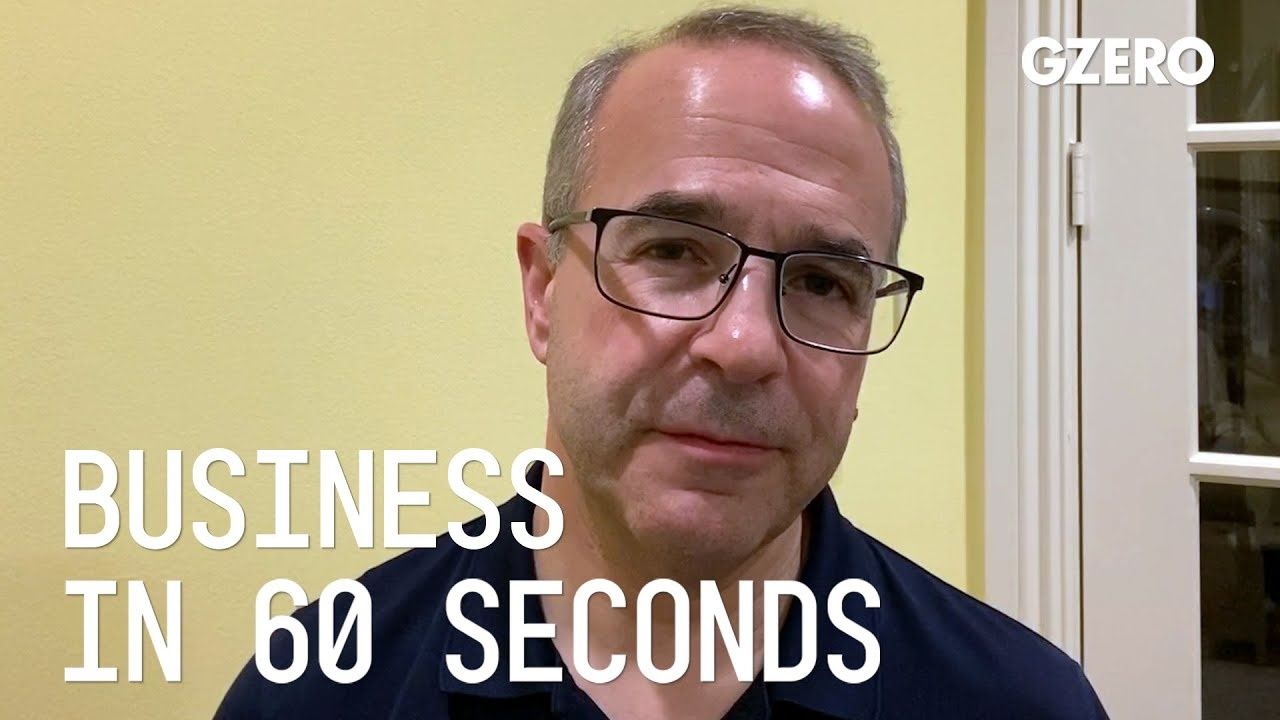In 60 Seconds
What will the world look like after COVID-19?

New Norms in Business & Commerce Post-COVID-19 | Business In :60 | GZERO Media

Kevin Sneader, global managing partner for McKinsey & Company, provides perspective on what corporate business leaders are thinking during the global coronavirus crisis: Is it too early to envision how the world could look after Covid-19?
Well, in some respects, it is too early. We're still fighting a global pandemic. And most, if not all, effort needs to be on that. But at the same time, I am hearing business leaders beginning to talk about what it will take to resurrect their businesses and in doing so, resurrect the global economy, a task that is vital for all our futures. And as they do so, I think it is possible to discern the shape of a world post Covid-19.
First of all, Frances Cairncross wrote a very powerful book in the late 90s on "The Death of Distance," well, I think distance is now returning. People are becoming much more aware of the importance of product being made near to where they live, of who they're with. And as borders go back up, I think distance is going to become an increasing part of our reality, and of business reality.
Second, the contactless consumer. In many respects, that's not new. Digital has been ensuring that that has been an option for some time. But the boost that it has received to, for example, payments also going very much online and being digitized, talks to a world in which the contactless consumer may well become the norm rather than an exception when it comes to shopping and so many other forms of day to day activity.
Third, the importance of resiliency over efficiency. For some years now, our supply chains, for example, are being built for efficiency. Well, resilience is going to become ever more important as we reflect on the lessons from this Black Swan event. And in doing so, I think that will change the way business is conducted, quite fundamentally.
Fourth, we've long had a belief in the importance of commerce, but now there's a whole new sense of the worth of some of the other features of day-to-day life. And as that becomes true, I think business is going to have technology. A different rule for business versus, for example, government. And the intervention and the role that government can play as more and more of business and the economy is in fact owned by the government itself due to the actions now being taken to safeguard day-to-day lives and the ways of living that underpin them.
These are just a few of the features that are increasingly going to shape the world after Covid-19 has passed.
100 million: The number of people expected to watch the Super Bowl halftime performance with Bad Bunny, the Puerto Rican superstar and newly minted Album of the Year winner at the Grammys.
Think you know what's going on around the world? Here's your chance to prove it.
An imminent US airstrike on iran is not only possible, it's probable.
Americans are moving less — and renting more. Cooling migration and rising vacancy rates, especially across the Sunbelt, have flattened rent growth and given renters new leverage. For many lower-income households, that relief is beginning to show up in discretionary spending. Explore what's changing in US housing by subscribing to Bank of America Institute.